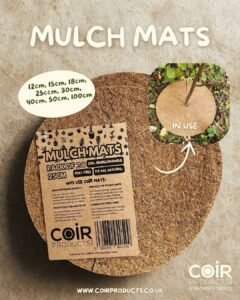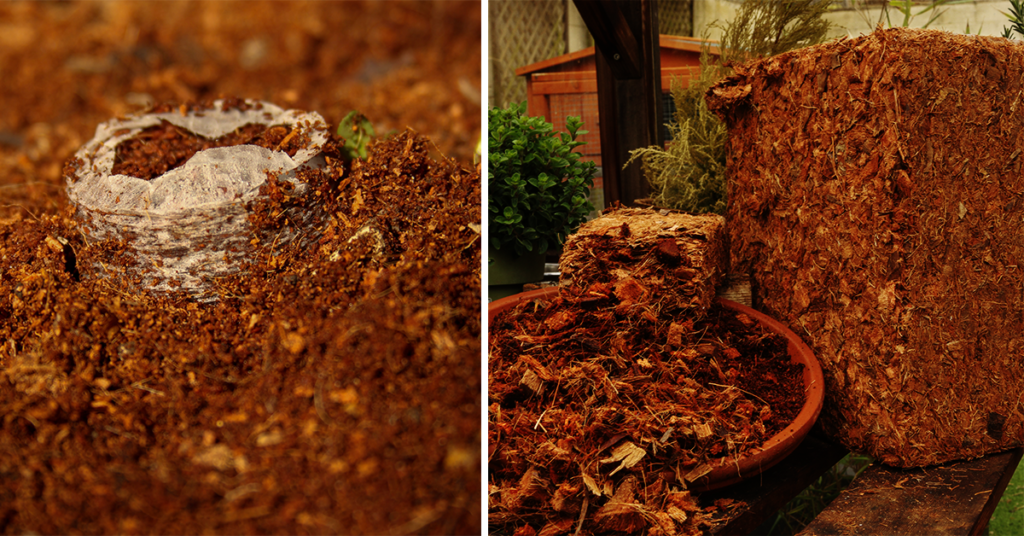
Transform Your Garden with Biodegradable Mulch Mats
In a world where every choice we make ripples through our planet and our personal sanctuary, your garden deserves more than the ordinary. It deserves

August 7-13, 2023 is National Allotments Week, an initiative of the National Allotment Society. This year, the theme for National Allotments Week is soil health, with the purpose being to create awareness about the benefits of looking after your soil as well as the creatures you find in it.
Allotment gardening: A brief history
Gardening and spending time in nature, does wonders for our physical and mental wellbeing. Evidence of allotments dates back to the Anglo-Saxon times. The allotment system as we know now can be traced back to the 19th Century, when, during industrialisation, land was given to the labouring poor so they could grow food. The demand for allotments increased during the World Wars with blockades and food shortages. The Dig for Victory campaign set up during World War II in Britain encouraged people across the country to grow their own food amidst harsh rationing. Large open spaces were transformed into allotments. Yet, interest in allotments declined years after the end of World War II due to various factors including the cheap and easy availability of mass produced food as well as busier lifestyles of people. At the same time, legislation was also introduced to help strengthen the rights of allotment holders and protect allotments.
In recent years, there has been an increase in demand for allotment plots in the UK. With more and more people becoming conscious of the type of food they consume and the rising costs of living, there has been renewed interest in gardening. Allotment gardening is also helpful for fostering a sense of community and friendship. Research has shown, how, during the Covid-19 pandemic, allotment spaces became essential havens for many people, allowing them to connect with their local environment while producing their own food.
Why is soil health important?
Good soil health is important for a variety of reasons. The National Allotment Society notes that good soil health is not only important to improve yield but also for biodiversity and the environment.
According to data highlighted by the Soil Association, 97% of food production relies on the soil. The UN Food and Agricultural Organisation points out that soil quality directly impacts food quality and quantity. With soil vital for providing essential elements such as nutrients, water, oxygen, and root support that food-producing plants need, looking after the soil goes a long way in providing people and animals with healthy crops.
As highlighted by FAO, “a healthy soil is a living, dynamic ecosystem”, filled with various microscopic and larger organisms. These organisms provide many useful functions, while also helping to control plant disease, pests, and improving the soil structure. Healthy soil can also help prevent floods.
At the same time, soils also store more carbon than the atmosphere and the world’s plants and forests put together. Therefore, maintaining good soil health is also important for mitigating climate change. According to the Soil Association, the UK’s soil alone is said to hold around 10 billion tonnes of carbon, which is the same as the total global emissions created by humans in one year.
What can you do to improve your soil
Sustainably using and managing your soil is important for maintaining the health of your soil, which in turn contributes to good growth and improved yield.
When growing, opting to use high quality, sustainable potting mix, such as our CoirProducts.co.uk coir potting mix helps improve the essential elements of the soil. Coir retains water well, facilitates air porosity, and has excellent drainage. Coir is completely natural and peat-free, which means it is beneficial for plants and the planet. Adding organic matter such as plant debris can also help improve soil structure.
Mulching also helps improve the soil, especially helping to stimulate natural growing conditions, retain soil moisture, and prevent the growth of unnecessary weeds. CoirProducts.co.uk coir mulch mats are completely natural and biodegradable, decomposing into the soil over time.
Planning and rotating crops every year also helps keep garden soil healthy by preventing the depletion of nutrients and disturbing the cycle of pests and diseases. Identifying plants that help improve soil health and also planting cover crops are also useful for improving soil fertility.
With plenty to think about when it comes to ensuring the quality of your soil, take time to get to know your soil, do your research on what works best within your growing conditions, and plan ahead so you are able to help improve your soil and with that the quality of your produce and yield.
The allotment system as we know now can be traced back to the 19th Century, when, during industrialisation, land was given to the labouring poor so they could grow food. The demand for allotments increased during the World Wars with blockades and food shortages. The Dig for Victory campaign set up during World War II in Britain encouraged people across the country to grow their own food amidst harsh rationing. Large open spaces were transformed into allotments.
Yet, interest in allotments declined years after the end of World War II due to various factors including the cheap and easy availability of mass produced food as well as busier lifestyles of people. At the same time, legislation was also introduced to help strengthen the rights of allotment holders and protect allotments.
In recent years, especially during the Covid-19 pandemic, there has been a renewed interest in allotment growing with more people concerned about the type of food that is consumed, healthy eating,
The wider benefits of allotments and gardening, as well as spending time in nature, were more acutely felt during the pandemic. Not only were they beneficial to stay physically active, but hugely important for an individual’s mental health and wellbeing.
More recently, allotment spots have begun to fill with rising concerns about the food we eat, amidst issues such as chemical pollution and contamination of our food. Allotments are not only important sites of food production, but vital for the future of our planet.

In a world where every choice we make ripples through our planet and our personal sanctuary, your garden deserves more than the ordinary. It deserves

We continue our special series highlighting grower’s experience of using coir with Kay @brook_cottage_. With a love for growing a mix of flowers, fruits, and